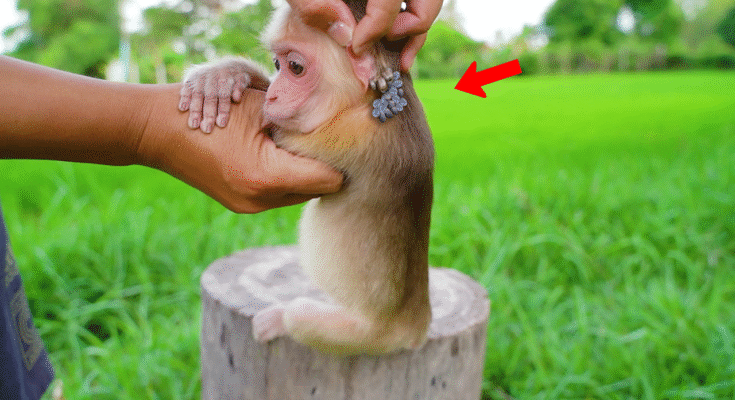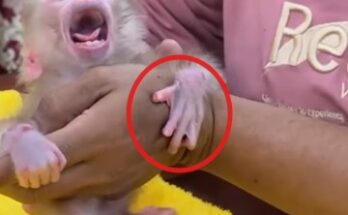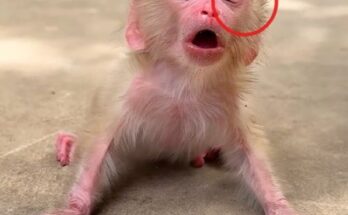Monkeys, like many other animals, are vulnerable to parasites such as fleas. While fleas may seem like a small nuisance, they can cause serious health problems if left untreated. Protecting monkeys against fleas is not only important for their comfort but also for their overall well-being.
Why Flea Protection Matters
Fleas feed on blood, which can lead to skin irritation, itching, and even infections. In baby monkeys, flea infestations can be particularly dangerous, causing anemia, weight loss, and stress. For monkeys living in rescue centers, sanctuaries, or even as part of conservation programs, flea prevention is a vital part of daily care.
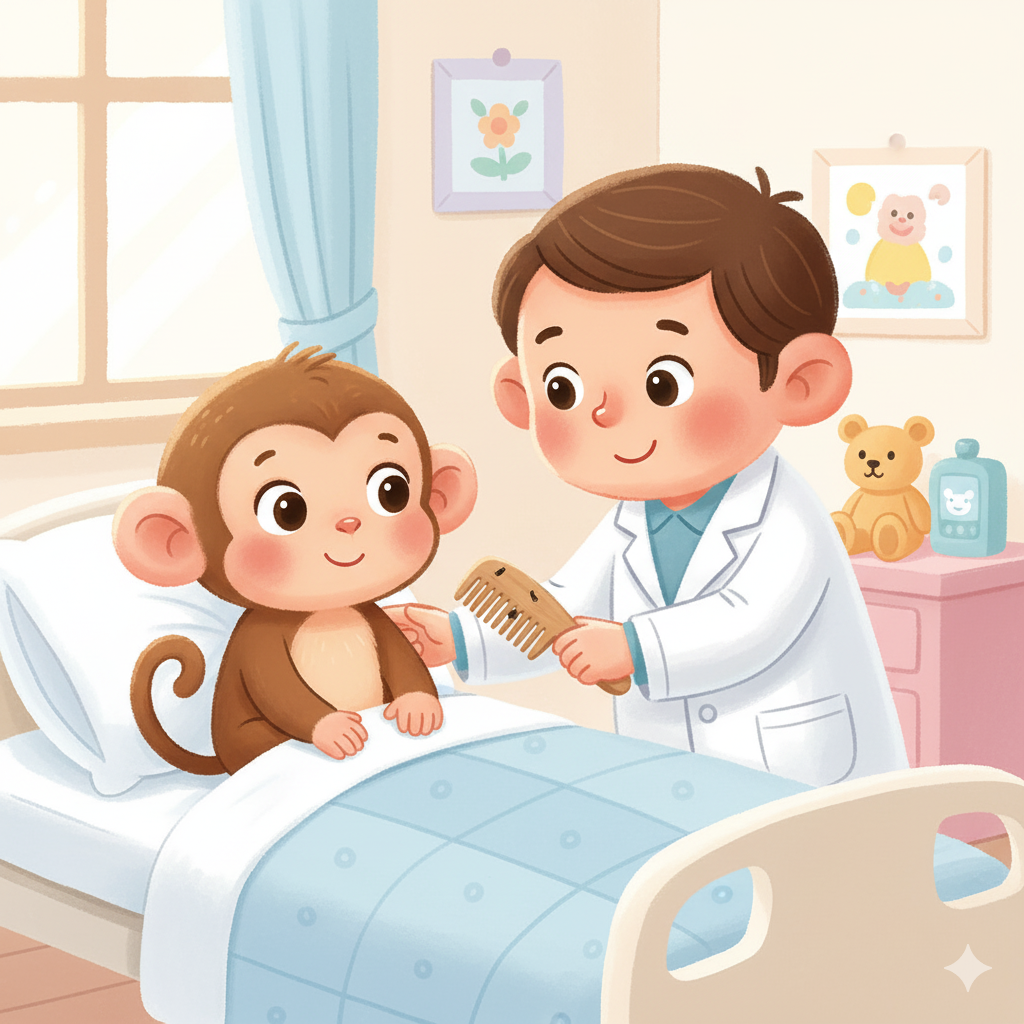
Common Signs of Fleas in Monkeys
- Constant scratching or biting at the skin
- Red patches, rashes, or bumps
- Hair loss in certain areas
- Visible flea dirt (tiny black specks) on the skin or fur
- Restlessness and discomfort
Recognizing these signs early ensures that treatment can begin before the problem escalates.
Safe Ways to Protect Monkeys from Fleas
- Regular Grooming
Grooming is not only a bonding activity but also an effective way to detect and remove fleas. Special flea combs can be used to check fur regularly. - Clean Living Spaces
Bedding, blankets, and enclosures should be washed and disinfected frequently. Fleas thrive in dirty environments, so cleanliness is essential. - Veterinary Treatments
Safe anti-flea sprays, shampoos, or oral medications prescribed by veterinarians are highly effective. These treatments must be tailored to the monkey’s age and health condition. - Natural Remedies
Some sanctuaries use natural repellents like neem oil or essential oil sprays (with professional guidance) to help keep fleas away. - Quarantine and Monitoring
Newly rescued or relocated monkeys should be monitored closely before joining others, reducing the risk of spreading fleas.
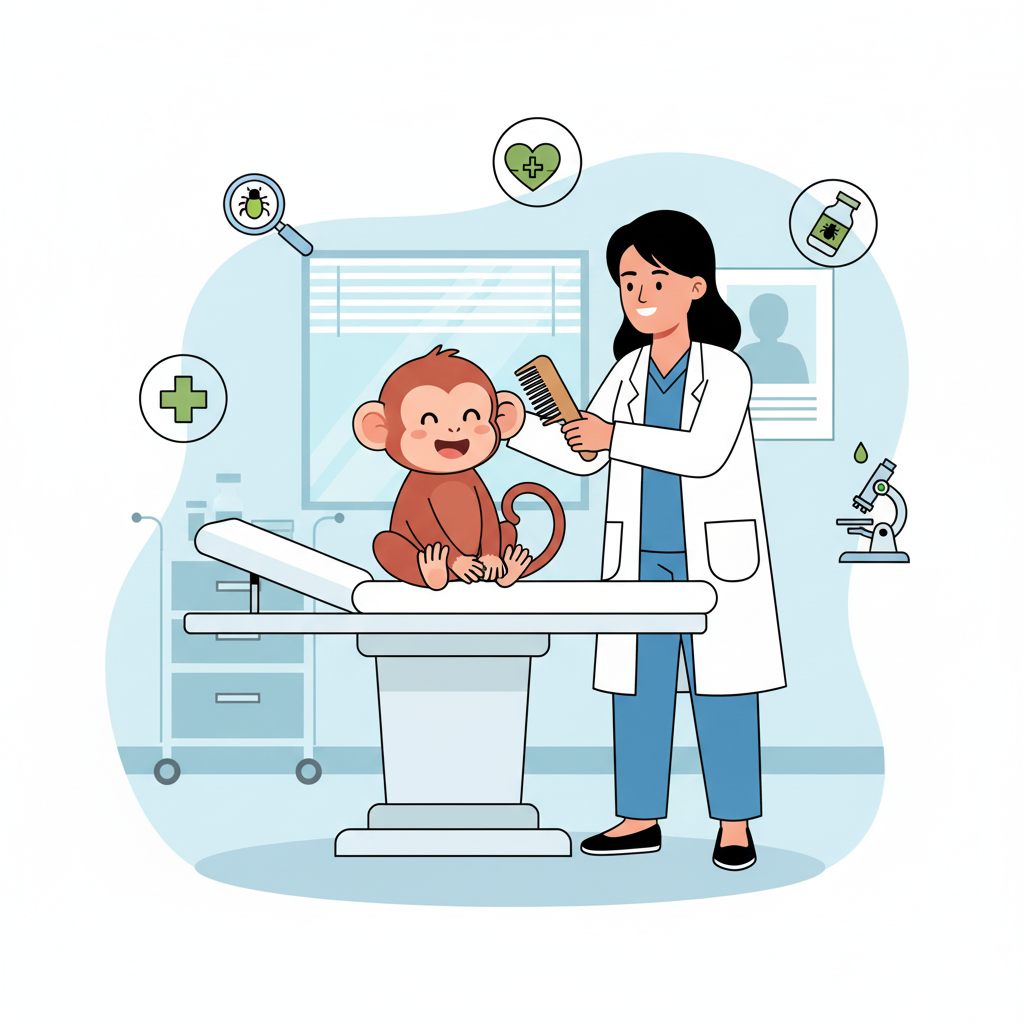
The Role of Caretakers and Veterinarians
Protecting monkeys against fleas requires teamwork between caretakers and veterinary staff. Caretakers can spot early warning signs during daily interactions, while veterinarians provide safe and effective treatments. Together, they ensure that monkeys remain healthy and stress-free.
Conclusion
Flea prevention in monkeys is more than just pest control—it is about safeguarding their health, comfort, and quality of life. Whether in the wild, in sanctuaries, or under human care, protecting monkeys against fleas is a vital responsibility. A proactive approach ensures that these intelligent animals can thrive without the discomfort and risks posed by parasites.
